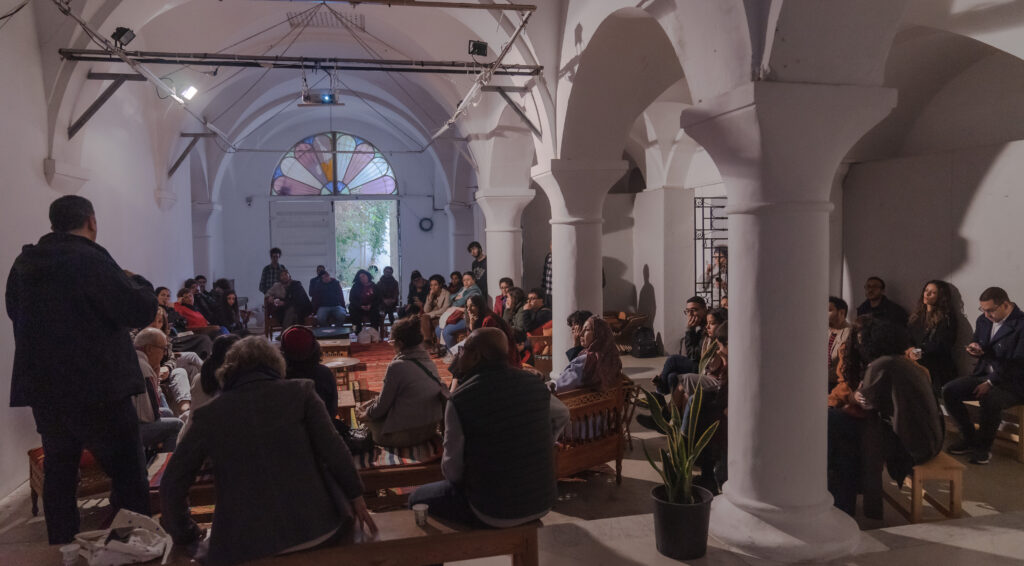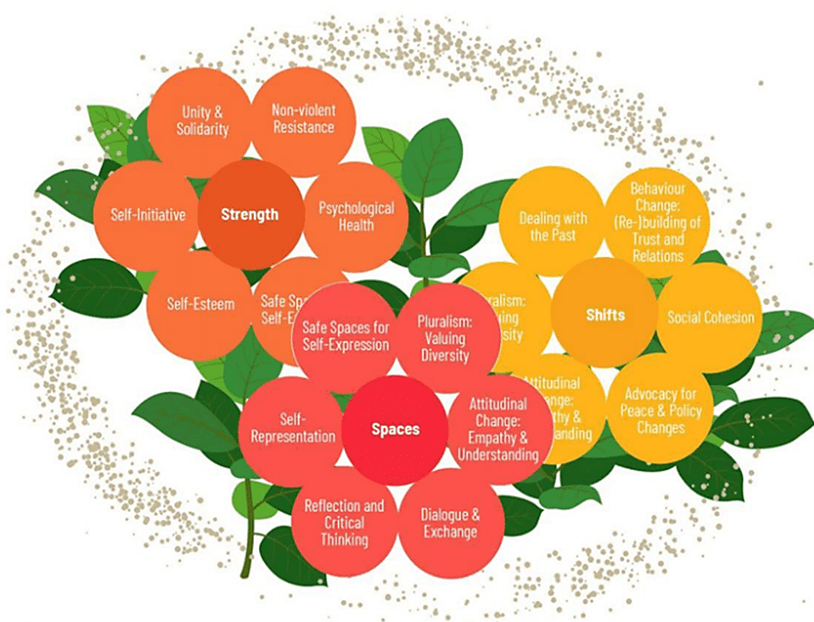
Switzerland promotes independent, diverse, and participatory cultural sectors in its partner countries through its international cooperation as an important contribution to sustainable development, democratic participation, conflict prevention, and peace. Art and culture, in particular, make it possible to keep spaces open for critical debate and peaceful dialogue.
Culture is a human right and a driver of social change. In times of increasing authoritarianism and restricted spaces for freedom of expression and assembly, strengthening cultural actors serves as an important counterbalance that reinforces the diversity of narratives and opinions. Culture provides an inclusive space for dialogue and democratic participation for people from various cultural backgrounds, allowing them to engage peacefully and creatively with one another. This contributes to trust-building and social cohesion.
Art and culture promote the exchange of ideas and open debate about differences, thereby making a significant contribution to mutual understanding, tolerance, and trust. Dialogue between religious and ethnic groups or political opponents forms the foundation for peaceful relations between individuals, communities, or states. Switzerland promotes this intercultural exchange and dialogue in its international cooperation as a contribution to conflict prevention and peace promotion. The cultural engagement of the Swiss Agency for Development and Cooperation (SDC) within the Federal Department of Foreign Affairs is based on the “Thematic Guidance on Culture and Development (2024)“.
SDC’s cultural program in North Africa illustrates the contribution of culture to peace and how Switzerland promotes cultural and artistic expression in the region: It offers educational opportunities and creates space for critical thinking and peaceful intercultural dialogue to foster mutual understanding and strengthen resilience.
Another example comes from Burkina Faso, where cultural expressions and local identity are crucial for social cohesion. The project “Ambassadors for Peace” trains local leaders for humanitarian and peace-promoting activities that are rooted in local cultural values.
The recently published reflection paper on culture and sustaining peace suggests three categories to summarize the contribution of art and culture to sustainable peace: resilience, spaces, and change. Firstly, art and culture help strengthen and support the resilience and courage of people affected by conflicts. Secondly, art and culture create, strengthen, or preserve civic spaces for cultural diversity, expression, and dialogue, thereby contributing to a foundation for peace. Thirdly, art and culture contribute to changing attitudes, perceptions, and behaviors, which in turn is a driver of change.
Depending on the context, the spaces for art and culture are defined differently, and the projects must be adapted accordingly. Additionally, the application of a conflict-sensitive program management approach is crucial to avoid deepening social divides and societal fragmentation.
